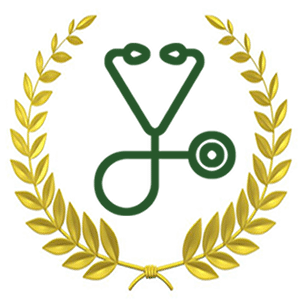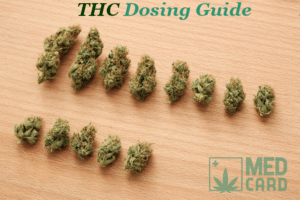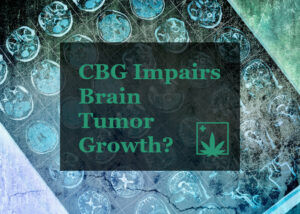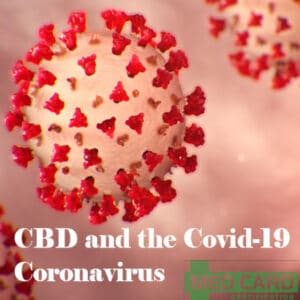
Medical Marijuana for Young Women’s Health Q&A
- Some young women suffering from female-specific medical conditions are finding a measure of relief from some of their symptoms with medical marijuana.
- Medical marijuana has been shown to help with a wide array of symptoms including chronic pain and cramping, anxiety, and depression.
- There are conflicting reports as to whether or not marijuana can reduce fertility or reduce the effectiveness of birth control hormones.
- Marijuana and cannabis-infused medicines are available at medical marijuana dispensaries nationwide, however, some states require patients to get a medical marijuana card to shop at dispensaries.
Female reproductive organs are prone to a handful of ailments such as breast, ovarian, cervical, or uterine cancers. Can medical marijuana help patients suffering from these conditions? Can medical marijuana be used prior to, during, or after pregnancy? And does marijuana affect fertility or reduce the effectiveness of birth control methods?
Far more research needs to be done to adequately answer these questions. But there is substantial evidence that phytocannabinoids found in medical marijuana can help reduce inflammation, relieve pain, and help tame anxiety and depression.
Whether or not patients of these conditions are eligible for a medical marijuana card varies from state to state. Currently, 18 U.S. states do not require adults 21 and older to obtain a medical marijuana card to shop at local dispensaries.
In states where marijuana is still illegal, hemp-derived CBD products may be another option. Hemp, cannabis crops that produce less than 0.3 percent THC, is legal nationwide. THC is the intoxicating cannabinoid found in marijuana. Some strains of hemp are high in non-intoxicating cannabinoids such as CBD, CBG, CBN, and CBC. Anyone can buy CBD online or in local shops without a medical marijuana card as long as it is produced from hemp.
Let’s take a look at a few of the medical conditions that are specific to young women and some of the studies that have been undertaken to determine whether or not medical marijuana can help treat these patients. We’ll also discuss how medical marijuana affects fertility and birth control.
For those who would like to take a deeper dive into these topics, links to some of the studies discussed below can be found at the end of the article. We’ll also link to more in-depth articles throughout this post.
Should women use medical marijuana while on the pill?
Studies by the Department of Hygienic Chemistry in Japan and the Department of Pharmacology in the Czech Republic suggest that medical marijuana consumption may interfere with the efficacy of birth control products.
For young women using estrogen-based birth control methods, it’s possible that some phytocannabinoids (CBD in particular) may act as an “enzyme inhibitor.” Certain enzymes are responsible for the proper metabolization of some medications.
Some birth control methods that may be negatively impacted by medical marijuana use include combination birth control pills, NuvaRing, and birth control patches.
Another inherent risk of cannabinoid consumption (THC in particular) in conjunction with birth control may be elevated blood pressure. For some women with pre-existing conditions, taking the pill or other estrogen-based products may exacerbate the issue. Adding cannabinoids to the mix may potentially worsen the condition even more. Moreover, smoking has been shown to cause elevated blood pressure in some patients.
Additionally, THC can actually increase estrogen levels, potentially putting users at higher risk of blood clots and stroke.
The Journal of Hypertension reported on a 2016 study. Authors postulated that “a modest association between recent cannabis use and systolic blood pressure.” But researchers stressed the importance of waiting for other studies to investigate further.
This evidence needs to be backed up by more research to fully determine the impact of phytocannabinoids on the effectiveness of birth control products.
If there are concerns, it’s wise to consult a medical professional and ask for progesterone-only contraceptives if there is a risk of stroke or birth-control failure. At present, due to the lack of information, it may be prudent to proceed with awareness and caution when combining marijuana and the pill.
Does medical marijuana affect fertility?
In a 2020 animal study by the Endocrine Society, female eggs were exposed to THC. The exposed eggs displayed an impaired ability to produce viable embryos. The non-viable embryos are significantly less likely to result in a full-term pregnancy.
Megan Misner, a researcher at the University of Guelph evaluated the ability of embryos exposed to THC to reach critical stages of development. They discovered that higher applications of THC delayed certain stages of growth in the embryo.
“This is a key indicator in determining the quality and developmental potential of the egg,” However, Misner elaborates on this research and states: “Currently, patients seeking infertility treatments are advised against cannabis use, but the scientific evidence backing this statement is weak. This makes it difficult for physicians to properly advise patients undergoing in vitro fertilization.”
On the other hand, when researchers surveyed 4,194 women aged 21 to 45 living in Canada and the U.S., the survey indicated that after 12 cycles of follow-up, conception rates were comparable among marijuana users and non-marijuana users.
“Future studies with day-specific data on marijuana use might better be able to distinguish acute from chronic effects of marijuana use, and evaluate whether effects depend on other factors,” the authors of the study wrote.
Should young women use medical marijuana during pregnancy or breastfeeding?
The full effect of phytocannabinoids on the fetus is not known. It’s not advisable to consume any cannabis products to control pregnancy-related symptoms such as morning sickness. Additionally, it’s not a good idea to use cannabinoids while nursing as phytocannabinoids can find their way into breastmilk and be consumed by the baby.
If the new mother is no longer breastfeeding, it might be safe to use medical marijuana for the treatment of postpartum depression.
Does medical marijuana help protect against breast, ovarian, cervical, or uterine cancers?
There are a growing number of studies indicating that cannabinoids inhibit the growth of tumor cells in test tubes and rodents. Unfortunately, at present, there is a severe dearth of human studies to make this determination.
At this time, a number of in vitro and animal studies have produced some preclinical data — that is data obtained prior to utilizing the treatment in a clinical setting.
The American Cancer Society reports:
“More recently, scientists reported that THC and other cannabinoids such as CBD (cannabidiol) slow growth and/or cause death in certain types of cancer cells growing in laboratory dishes. Some animal studies also suggest certain cannabinoids may slow growth and reduce the spread of some forms of cancer. However, these substances have not been tested in humans to find out if they can lower cancer risk. There is no available scientific evidence from controlled studies in humans that cannabinoids can cure or treat cancer.”
So far, studies have been promising. Many experts expect there will be major breakthroughs in upcoming research on medical marijuana for the treatment of breast, ovarian, cervical, and uterine cancers.
Does medical marijuana help cancer patients?
Cancers occurring in many young women are often deadly (ovarian and uterine especially) as they are hard to detect and are too often diagnosed late in cancer’s progression. Chemotherapy, radiation, and surgery are usually the only remaining options for many women suffering from these invasive cancers.
These treatments are highly invasive and have a tendency to cause painful, disruptive side effects such as loss of appetite, nausea, and vomiting, and extreme bouts of anxiety and depression. Certain medications to alleviate these symptoms come with a host of other untenable side effects.
Medical marijuana is known to significantly lessen these side effects with virtually no negative impact and may be an effective antidote for these symptoms.
Dr. Donald Abrams, an oncologist at the University of California, SF, is a firm believer in the administration of medical marijuana to offset the nasty side effects of chemo. He believes that marijuana can alleviate chemo-induced nausea and has the ability to stimulate appetite.
Dr. Abrams recently stated: “I think you still need to use conventional therapies to treat the disease, but if you have symptoms that might benefit from cannabis, you should consider using it. As an oncologist for 38 years, I can tell you it’s an effective treatment for nausea.”
Dr. Abrams also maintains that cannabis can effectively reduce the inflammatory response that causes pain and also regulate pain signals in the brain.
Furthermore, recent cannabis studies indicated that cancer patients who ingested cannabis concentrates in trials appeared to need far less prescription pain medication.
Does medical marijuana help treat symptoms of PMS?
Some unpleasant PMS symptoms that medical marijuana may alleviate include migraines and cluster headaches, mood swings, hypersensitivity, tension, and irritability.
During bouts of PMS, serotonin and dopamine levels may be compromised. Cannabis is known to help with the anxiety, depression, and extreme mood swings common in women experiencing PMS.
Medical marijuana is also believed to be a potent anti-inflammatory, which makes it a potential option for treating migraines and cluster headaches associated with premenstrual periods.
Phytocannabinoids interact with receptors that are part of our innate human endocannabinoid system to produce naturally occurring endorphins and opioids. This interaction is thought to reduce the inflammatory response thereby alleviating the resulting pain.
THC and CBD interact with endocannabinoid receptors resulting in the production of serotonin and dopamine — the “feel good” hormones. Consuming medical marijuana products in any form may help to balance the production of serotonin and dopamine to offset irritability, tension, and radical mood swings experienced prior to menstruation.
Anxiety and pain may interfere with sleep patterns when women are going through PMS. Anecdotal evidence suggests that drowsiness is a common effect of cannabis consumption. Ingesting cannabis an hour or so before bedtime may significantly increase the odds of having a good, uninterrupted night’s sleep during PMS episodes.
Does medical marijuana help relieve pain and cramping from PMS, endometriosis, and fibroids?
PMS also creates a significant amount of abdominal pain and stress from relentless cramping. Surprisingly, this cramping is not caused by muscle contractions. Cramping during PMS is the result of hormone-like substances called prostaglandins that cause the uterus to contract.
Phytocannabinoids found in medical marijuana may reduce cramping with their antispasmodic properties. The same cannabinoids are believed to block the neural pathways that transmit pain by interacting with endocannabinoid receptors found throughout the body and brain.
Young women suffering from endometriosis, polycystic ovarian (PCOS), and uterine fibroids experience more pronounced anxiety, pain, cramping, and discomfort from PMS. Medical marijuana consumption may reduce symptoms stemming from these conditions as well.
Cannabinoids may also reduce the symptoms of these conditions by reducing the production of the stress hormone cortisol. A recent double-blind, placebo-controlled study indicated the potent anti-anxiety effects of CBD.
The study, using human volunteers, compared the cannabinoid to the anti-anxiety medication benzodiazepine, with favorable results. The researchers concluded that CBD reduces anxiety in people submitted to stressful situations.
Additionally, there is a strong correlation between PCOS and insulin balance. Certain cannabinoids may, in fact, help regulate blood sugar and improve the negative feedback control of insulin balance.
Does medical marijuana help young women with Rett syndrome?
Rett Syndrome is a developmental, genetic neurodegenerative disease that expresses itself predominantly in females. The condition is rife with debilitating symptoms characterized by impaired motor skills such as walking and talking.
Rett syndrome may also be expressed with gastro-intestinal issues, scoliosis, anxiety, and repetitive hand movements. The life expectancy for women suffering from this debilitating disease is 40-50 years of age.
Medical marijuana may potentially be able to modulate the extreme neurobehavioral deficiencies caused by the disorder. This is because certain cannabinoids contained in marijuana are believed to offer antispasmodic, neuroprotective, anti-inflammatory, and antioxidant effects.
In an evidence-based review from the American Academy of Neurology, it was reported that phytocannabinoids indicated tremendous potential in the treatment of neurological conditions. This potential of cannabinoids to decrease the spasticity and pain of MS was demonstrated in a number of controlled, randomized studies. The outcome of the studies was heartening to Rett syndrome patients who suffer the same symptoms as those with multiple sclerosis.
Furthermore, The British Journal of Pharmacology (March 2014) reported that “modulating the endogenous cannabinoid system is emerging as a potentially viable option in the treatment of neurodegeneration.” This is also good news for Rett syndrome sufferers and other patients with neurodegenerative conditions.
Conclusion
In conclusion, we’re still in the very early stages of research into medical marijuana’s effects on young women’s health issues and its effects on fertility and birth control. While phytocannabinoids are being used successfully to treat symptoms such as pain, cramping, and moodiness in some women, it’s effects on fertility and birth control are inconclusive.
The medical conditions mentioned in this article are all serious and some are life-threatening. Young women suffering from these ailments should not attempt to self-medicate. Patients are advised to seek the opinion of a knowledgeable medical marijuana doctor before using cannabis products.
Sources and Additional Reading
- Marijuana and birth control pills
- Cannabis and Birth Control: What You Need to Know
- Cannabis Use and Blood Pressure Levels: United States National Health and Nutrition Examination Survey, 2005–2012
- Marijuana may impair female fertility
- Marijuana Use Does Not Lower Chances of Getting Pregnant
- Boston University PRESTO Study
- Marijuana and Cancer
- Marijuana for Menstrual Cramps: Does Cannabis Help?
















